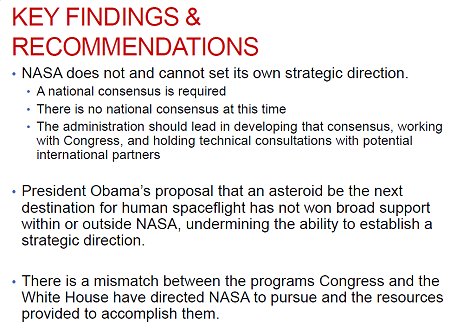Sen. Shelby [R-AL] will protect the Senate Launch System no matter how much it costs: Shelby vows to protect the SLS – Space Politics
===
Cutting the SLS would free up money for both human spaceflight and planetary robotic missions: Scientists and advocates once again seek restoration of NASA planetary funding – Space Politics
===
The Texas Space Alliance applauds the attention given to commercial space in Gov. Perry’s address this week:
Texas Space Alliance applauds Gov. Rick Perry’s State of the State Address
Statements highlight the bright future of space in Texas!
AUSTIN, TX, JAN 31, 2013 – In his State of the State address on January 29, 2013, Gov. Rick Perry offered remarks that reinforced how Texas is cementing itself as a Space State, one that is actively seeking all forms of space enterprise and entrepreneurial endeavors, including commercial, govt., military, and private. Rick Perry spoke on the remarkable progress that has been achieved in such a short time: “And just last June, Texas took another giant leap into commercial space, as XCOR Aerospace, a leader in the privatized space race, brought its research and development center to Midland. They’re part of a growing Texas presence in this important market, which includes businesses like SpaceX and Blue Origin….XCOR, Pactiv and Green Plate Kitchen, are reaching for the stars in their own way, right here in Texas, and representatives with those companies are with us today. Please join me, as they stand, to thank them for their contributions.”
Gov. Perry met with TXA and commercial space company executives in the summer of 2012, where he expressed his desire to help this fledgling industry grow to its full potential, and to do so in the Great State of Texas.
TXA Policy and Govt. Affairs Director Wayne Rast offered, “To have the Governor include commercial space businesses in his State of the State annual address shows just how highly he values this industry, and what they will mean to the future of our state.” Rast continued, “And it’s clear that the message is getting out. All areas, from the Governor, to various State departments and agencies, to excited local municipalities, and down to grass roots organizations like TXA and the general public, we are all excited about the future of space in Texas.”
TXA President Bob Lancaster added: “We are proud to see that Texas is honoring our pioneering heritage and using all the unique advantages of our state; from geography, to business climate and taxes, an inviting and reasonable regulatory environment, as well as a reformed education system that the Governor mentioned as the building blocks to the stars. Space education should be an integral part of school curriculum at all levels in Texas, as it not only advances interest in STEM fields to produce new engineers, scientists and workers needed for these new and exciting jobs, but also better informs the general public and political decision-makers regarding the potential of this industry.”
TXA will be using this legislative session to work on many fronts, including supporting the establishment of a formal organization to assist space-related efforts in the state. Additionally, we will support other efforts like those from space-friendly Rep. John Davis, who has offered a bill to add a commercial space representative to the Aerospace Advisory Council. TXA will be offering exciting new information about these processes as they unfold during the Texas 2013 legislative session and beyond.

